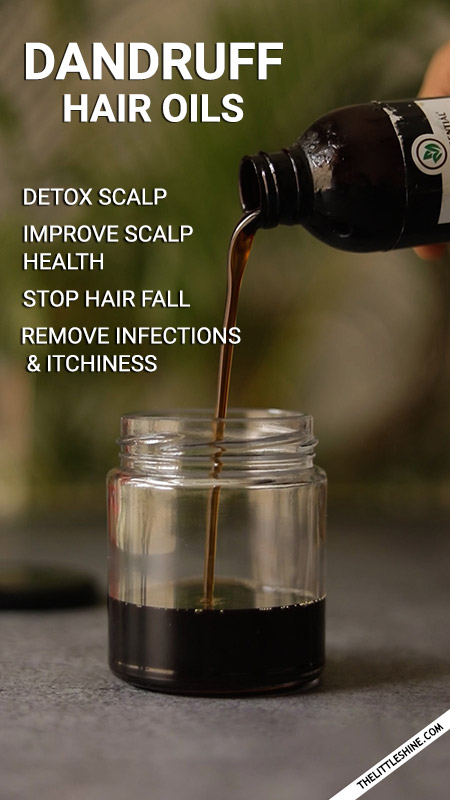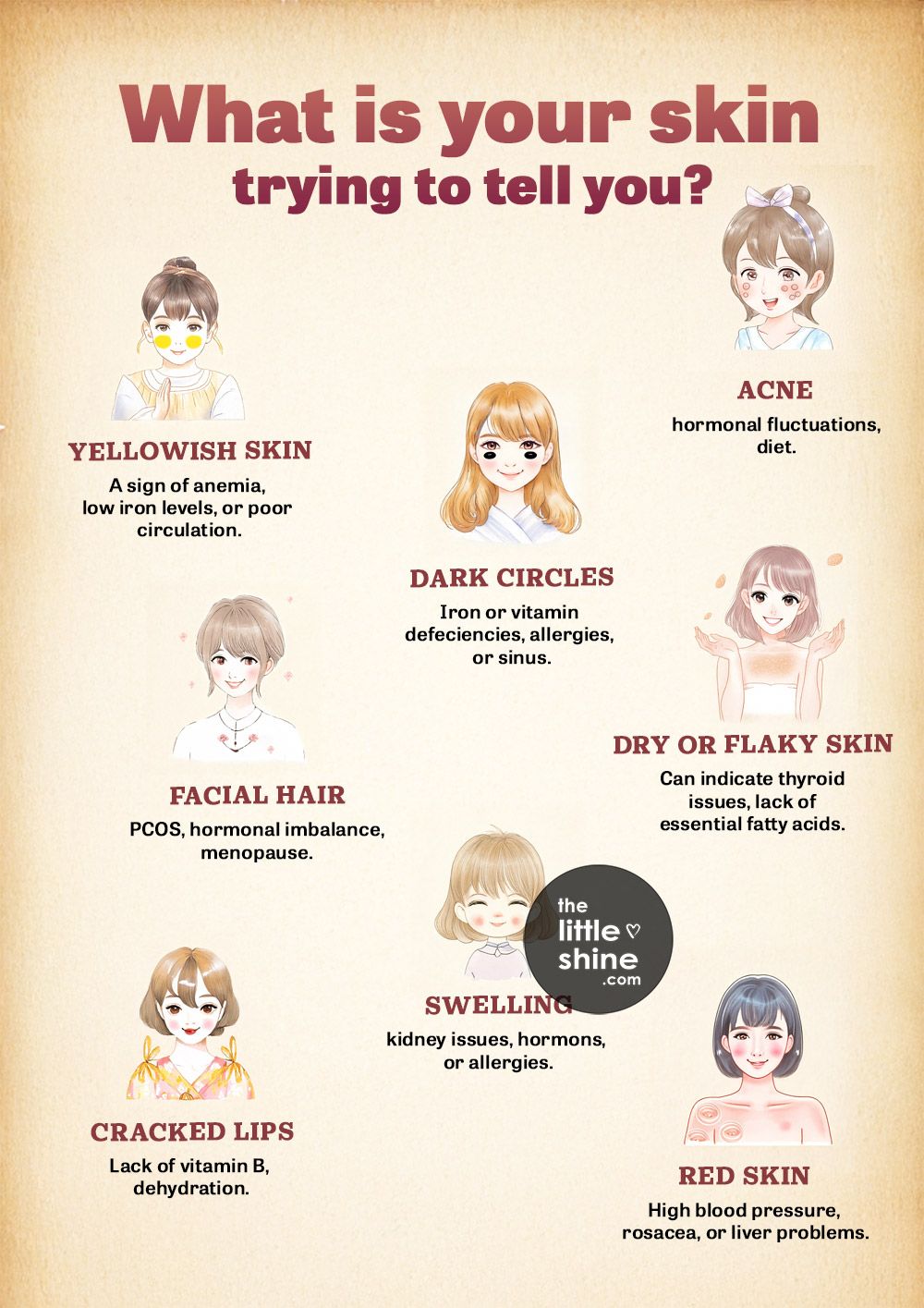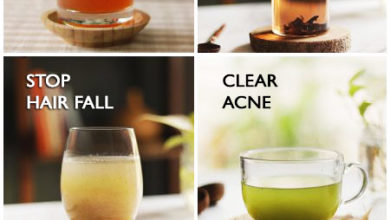HAIR OILS TO TREAT AND PREVENT DANDRUFF
Dandruff is a common condition faced by many people. It is considered to be a mild form of seborrheic dermatitis, which causes the skin on the scalp to flake. These are excess skin cells that accumulate and fall off. This isn’t a serious condition, nor is it contagious, but requires care to prevent it from forming or from increasing in those who already have it.

How do you know if you have got dandruff?
Yes, this could be a common question considering the fact that our scalp isn’t visible clearly to us.
Here are some common signs and symptoms that you may have that can determine whether you have dandruff or not:
- You may see skin flakes (whitish coloured flakes) falling on your shoulders, over your clothes.
- You will see flakes in your hair, scalp and over your eyebrows.
- You may develop a rash on your forehead.
- You will find your scalp itchy and tend to scratch.
What are the causes of dandruff formation?
- Naturally oily skin. R seborrheic dermatitis.
- Hair not being washed or shampooed often.
- Those who have dry skin.
- People prone to skin/scalp infections like Malassezia fungus
Here are the different oils you can use to reduce dandruff and prevent dandruff formation:
Oiling the hair helps provide nourishment to the scalp and hair follicles. Hair oiling can also help moisturize the scalp and help reduce or prevent dandruff formation. You can either use carrier oils or essential oils to help treat, reduce or prevent dandruff formation.
- Carrier oils:
1. Black seed oil:
Black seed oil is a versatile oil that most often agrees with almost every skin type. It is moisture packed and it is great for people with dry skin. Dry skin is one of the causes of dandruff. The oil can help penetrate through the epidermis or the top most layer of the skin ad can act like a barrier to help protect the skin from further dryness and inflammation. The oil contains properties that can also help fight inflammation as it has antimicrobial properties which can also help fight Malassezia (a type of fugus that is usually found on the scalp skin). This is one of the very common causes of dandruff formation.
2. Argan oil:
Argan oil is another type of carrier oil that is packed with vitamin E, ferulic acid and other fatty acids and is often known as “liquid gold”, because of its powerful beneficial properties. Argan oil can help nourish and moisturize the scalp skin and reduce dryness. It also contains antioxidants that can keep bacteria away.
3. Squalane oil:
Squalane oil has the chemical structure that resembles the oil produced by our scalp called ‘sebum’. This is an added benefit with using this oil because it can be readily absorbed into the scalp. It has hydrating and moisturizing properties that can help stimulate and treat the hair follicles from the inside, in turn reducing and preventing dandruff and other scalp infections.
4. Onion oil:
Onion oil helps to keep scalp skin irritation and dandruff at bay. It helps to soften the dandruff, which makes it looser on the scalp and in turn this can help it fall out more easily when the hair is washed. READ MORE – Onion Hair mask – treat hair fall and thinning hair
How to use these oils:
Heat up a little oil (as much as you need) and gently apply and massage it evenly into your scalp and rinse off after 30 minutes or leave it overnight and rinse off next morning.
- Essential oils:
1. Lemon essential oil:
Lemon essential oil has antiseptic and antimicrobial properties that can help fight dandruff and also prevent other scalp infections. It is particularly helpful for people with oil scalps.
2. Tea tree oil:
Tea tree oil has anti-fungal effects and is antibacterial in nature. It can be easily absorbed into the scalp and treat dandruff and other types of scalp infections.
How to use essential oils:
You can simply drop in five to eight drops of these oils into your shampoo and use it to shampoo your hair just how you regularly would.
3. Castor oil:
Castor oil is rich in vitamin E and contains essential minerals and proteins. Virgin castor oil can not only help reduce and treat dandruff, but can also promote better and healthier hair, as it has moisturizing and anti-fungal effects on the hair strands and scalp.
For castor oil, you can add in few drops of any other carrier oil and then use it as the consistency is thicker which makes it harder to apply when used separately. READ MORE – HAIR THICKENING WATER to regrow thinning hair
Caution: Most oils are safe for most skin types. But it is better to do a patch test on a small portion of your scalp and wait for a few minutes to check for any reaction, especially in case you have sensitive skin or are prone to skin irritation.

